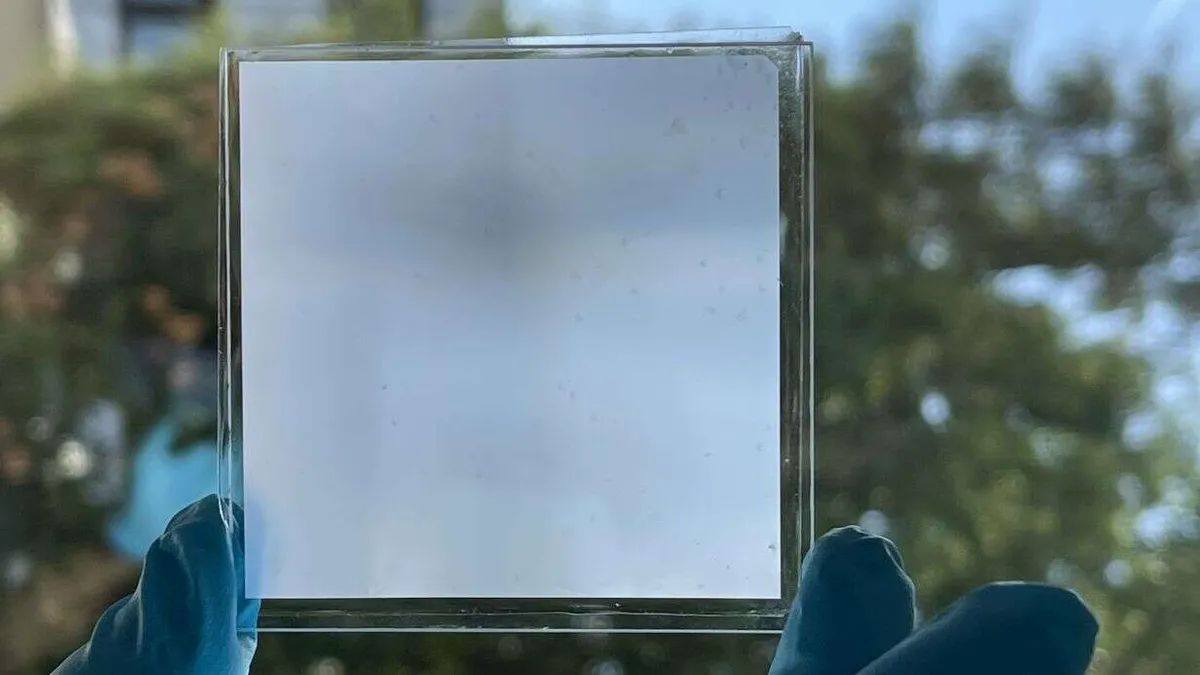A new self-cleaning and energy-efficient material has been developed by German researchers, which has the potential to replace glass in construction in the future. This material, known as polymer-based micro-photonic multi-functional metamaterial (PMMM), was able to cool six degrees Celsius compared to the outside temperature during tests. It also boasts a transparency rate of 95 percent, surpassing traditional glass’s 91 percent.
The use of glass in construction has become increasingly popular in recent years due to its ability to allow natural light to enter buildings and help save on energy costs. However, traditional glass poses challenges such as glare, lack of privacy, and overheating during the sunniest parts of the day. Existing glass coatings have not provided satisfactory solutions to these problems, prompting researchers at the Karlsruher Institut für Technologien (KIT) to develop a new polymer-based material.
The PMMM is made up of microscopically small pyramids comprised of silicone. These micropyramids, which are approximately ten micrometers in size, scatter light, giving the surface a fuzzy appearance when viewed from the outside. At the same time, they enhance the material’s water-repellent properties, allowing dirt to be washed away when water droplets come in contact with the surface.
The design not only improves light diffusion and self-cleaning capabilities but also allows for passive radiation cooling without the need for electricity consumption. Lab and outdoor tests have shown promising results, demonstrating the material’s potential to optimize sunlight usage indoors, provide passive cooling, and reduce reliance on air conditioning. With a scalable production process, this material could be integrated into eco-friendly construction methods, making it a valuable innovation for the future. The study detailing the development of this material has been published in the prestigious journal Nature Communications.
In conclusion, this new self-cleaning and energy-efficient material has great potential to replace glass in construction in the future due to its ability to cool buildings while maintaining transparency rates above traditional glass standards. The PMMM is designed with advanced features that allow for optimal sunlight usage indoors while reducing reliance on air conditioning systems. With further research and development efforts focused on scaling production processes and refining its design features further, this innovation could pave


